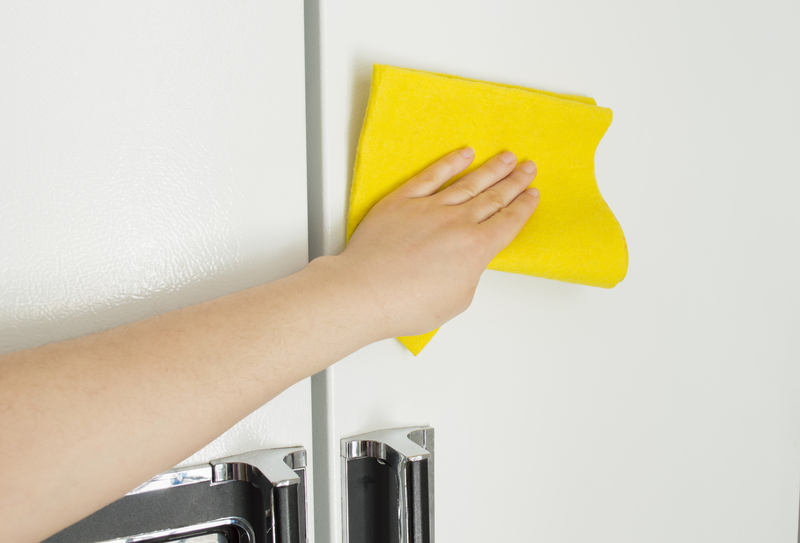Simple Feng Shui for Home Comfort
Posted on 04/09/2024
Feng Shui, an ancient Chinese art, balances the energies in your home to create a harmonious living space. Derived from the idea that our environment influences our wellbeing, Feng Shui combines elements of interior design, architecture, and energy flow to enhance comfort, health, and prosperity.
The Basic Principles of Feng Shui
Feng Shui revolves around the five elements - Wood, Fire, Earth, Metal, and Water. These elements interact in specific ways to foster a balanced and comfortable environment. Additionally, understanding the flow of Chi (life force energy) and the concept of Yin and Yang can help create a balanced space.

Decluttering: The First Step
Before delving into specific Feng Shui placements, decluttering is essential. A cluttered space obstructs the free flow of Chi, leading to stagnation and discomfort. Start by removing unnecessary items and organizing your space to pave the way for positive energy flow.
Furniture Placement for Optimal Flow
The arrangement of furniture plays a crucial role in Feng Shui. Position your furniture in a way that promotes an open and conducive flow of energy. For example, place your bed in a commanding position, facing the door but not directly in line with it. Ensure that pathways are clear and unobstructed to allow Chi to circulate easily.
Incorporating Feng Shui Elements
To integrate Feng Shui principles, incorporate items that represent the five elements. Use wooden furniture, plants, or wooden frames to symbolize Wood. Enhance Fire with candles, lighting, and warm colors like red and orange. Represent Earth with clay pots, ceramics, or earthy tones. Introduce Metal through metallic decor, sculptures, or color accents like white and gray. Add Water with fountains, mirrors, or shades of blue and black.
Creating a Harmonious Color Palette
Colors significantly impact our mood and energy levels. In Feng Shui, colors are categorized based on the elements. Choose colors that balance each other and resonate with the specific energy you want to attract. For instance, use serene blue tones in the bedroom for relaxation, vibrant reds in the living room for vitality, and calming greens in common areas for balance.
The Importance of Natural Light and Air
Natural light and fresh air are vital for good Feng Shui. Ensure your home receives ample daylight and keep windows open whenever possible for ventilation. Use sheer curtains to allow light to flow freely without obstructing energy. Additionally, consider using air-purifying plants to enhance air quality and introduce living energy to your space.
Personalizing Your Space
Incorporate personal elements that bring joy and comfort. Display photographs, artwork, and sentimental items that evoke positive memories and energy. Personalization infuses your home with your unique energy, amplifying the positive impact of Feng Shui.
Pros and Cons of Feng Shui
Pros
1. Enhanced Comfort: A well-balanced space promotes relaxation and wellbeing.
2. Improved Energy Flow: Proper arrangement and decluttering facilitate the free flow of positive energy.
3. Harmonious Living: Incorporating Feng Shui principles can foster better relationships and communication.
4. Aesthetic Appeal: Feng Shui often results in a more organized and visually pleasing living environment.
Cons
1. Initial Complexity: Understanding and applying Feng Shui can be complex and time-consuming initially.
2. Cost of Redecoration: Incorporating specific elements or making significant changes might incur additional costs.
3. Misinterpretation: Incorrect application of principles can potentially lead to negative energy flow instead.
Practical Feng Shui Tips
- Front Door: Keep the area clean and uncluttered, as it is the main entry point for energy.
- Mirrors: Use mirrors to reflect light and energy but avoid placing them directly opposite doors.
- Corners: Soften sharp corners with plants or decorative items to prevent stagnant energy.
- Bathrooms: Keep bathroom doors closed to prevent energy from draining away.

Key Takeaways
- Prioritize Decluttering: A clutter-free space is essential for good Feng Shui.
- Balance Elements: Incorporate and balance the five elements to optimize energy flow.
- Utilize Natural Light and Air: Maximize natural light and ventilation for a vibrant living environment.
- Personalization: Infuse your space with personal touches to enhance comfort and harmony.
Conclusion
Incorporating simple Feng Shui principles into your home can significantly enhance comfort and wellbeing. While it may seem complex initially, taking small steps, such as decluttering and balancing elements, can create a positive and harmonious living space. Embrace the art of Feng Shui to transform your home into a haven of peace and comfort, tailored to your unique energy and style.






